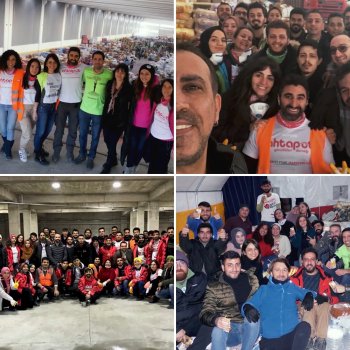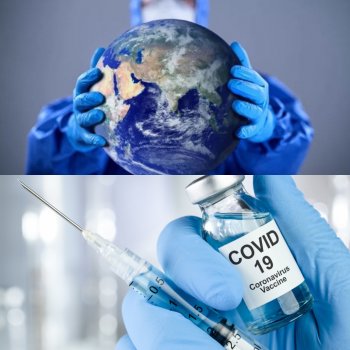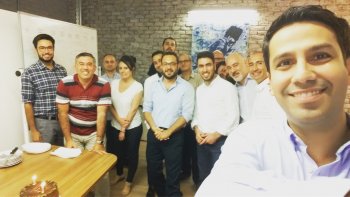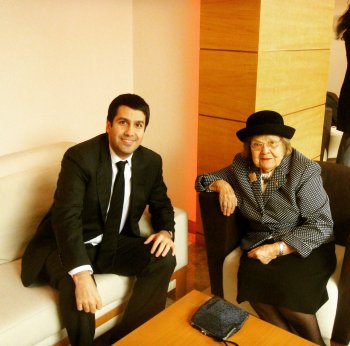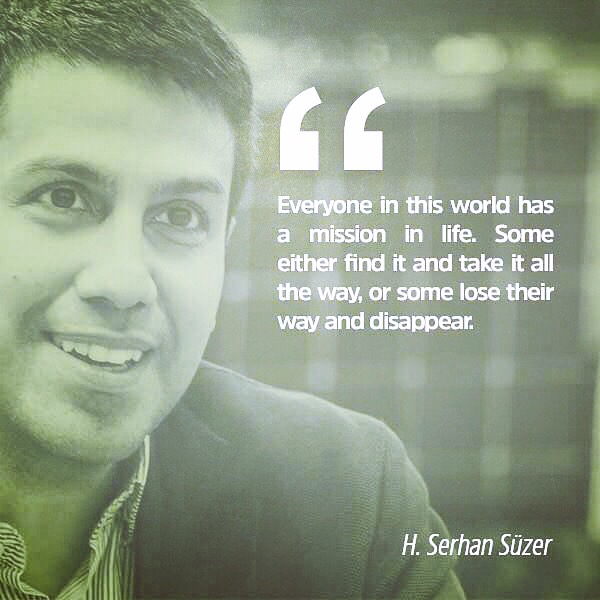The possibilities of revolution in agriculture with technology
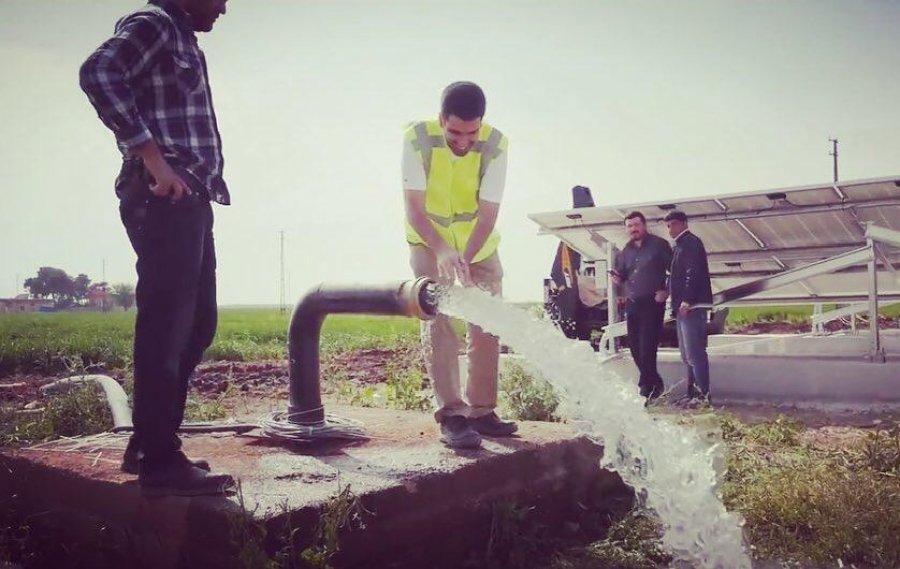
I made a speech at the 2. Agriculture, Food and Nutrition Policy Summit in Ankara, titled “Improving Agricultural Policies to Reduce the Devastating Effects of Climate Change in Turkey”. I would like to share with you my impressions and thoughts about this event, in which I emphasized with the examples of how renewable energy, water and agricultural technologies are important in combating climate change.I made a speech at the 2. Agriculture, Food and Nutrition Policy Summit in Ankara, titled “Improving Agricultural Policies to Reduce the Devastating Effects of Climate Change in Turkey”. I would like to share with you my impressions and thoughts about this event, in which I emphasized with the examples of how renewable energy, water and agricultural technologies are important in combating climate change.
The 2nd Agriculture, Food and Nutrition Policies Summit, organized in cooperation with the Food and Nutrition Association (GTBD) and the Center for Research on Food, Beverage and Agricultural Policies (GIFT), was held on 6-7 November 2018 at Swissotel in Ankara. The impact of climate change on the summit, bringing together the public and private sector and academicians, attended by experts and academicians from interstate and abroad, and the main themes of obesity and incomplete nutrition were discussed with presentations and panel sessions. You can find details on the conference link:
http://gtbd.org.tr/2-tarim-gida-ve-beslenme-politikalari-zirvesi/
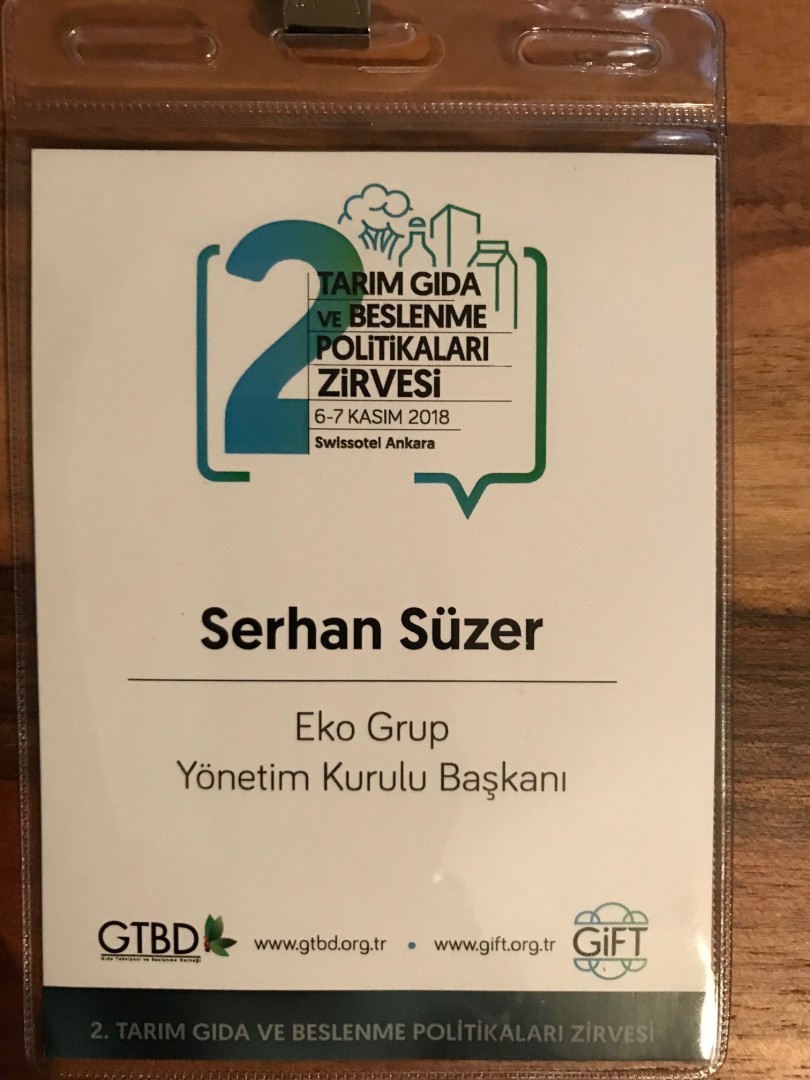
I would also like to share with you the topics which were discussed at this important conference:
Topics of Agricultural Policy
- Impact of climate change on water resources and agricultural yield
- Use of alternative energy sources in agriculture
- The impact of climate change on Turkish agriculture
- The use of intelligent technology in agriculture
- Protection of resources with food waste and waste prevention
- Farmers access to alternative sources of financing to reduce producer costs
- Reduction of farmer costs by digitalization in agriculture
- Increasing welfare of farmers with input and marketing cooperatives
Topics regarding Food and Nutrition Policies
- A holistic approach to the development of nutrition and health policies
- Parameters shaping nutritional behavior
- Can nutritional behavior change?
- Collaboration between public, business and academia in the fight against obesity
- Facts and myths in nutrition
- Healthy lifestyle, sports and nutrition
- Balanced and adequate nutrition problem
- Food labels and health statements
- Food and nutrition habits of consumers
- Functional foods and healthy living
- Nutrition by age groups
- Innovation and reformulation in food and nutrition
- Food advertisements and consumers
Panel participants and titles
I arrived at Ankara Swissotel on 11 November at around 11.00am. I completed my conference application and talked to the acquaintances in the foyer and was then redirected to join the lunch. Then our panel, which was to start at 1.30pm, started with a little delay which was at 2.00pm. The second panel at the conference was ours. The theme of the panel was titled as “to Reduce the Devastating Effects of Climate Change in Developing Agricultural Policies in Turkey”. Below are the topics of the panel participants and their speeches:
Professor Dr. Levent Kurnaz, Boğaziçi University Climate Change and Policy Implementation and Research Center Manager
“Was Turkey affected by agricultural climate change? What impacts should we expect in the future?
Dr. Mehmet Uğur Yıldırım, Director General of State Hydraulic Works (DSI)
“What kind of irrigation policy should be followed in the face of climate change?”
Sara Marjani Zadeh, UN FAO Central Asia Office, Water Specialist
“The role of UN FAO in combating climate change”
Yusuf Cemil Satoğlu, General Director of TARSIM
“Use of risk management tools to protect the farmer budget”
My speech
“How can we provide agricultural energy needs with alternative energy sources?”
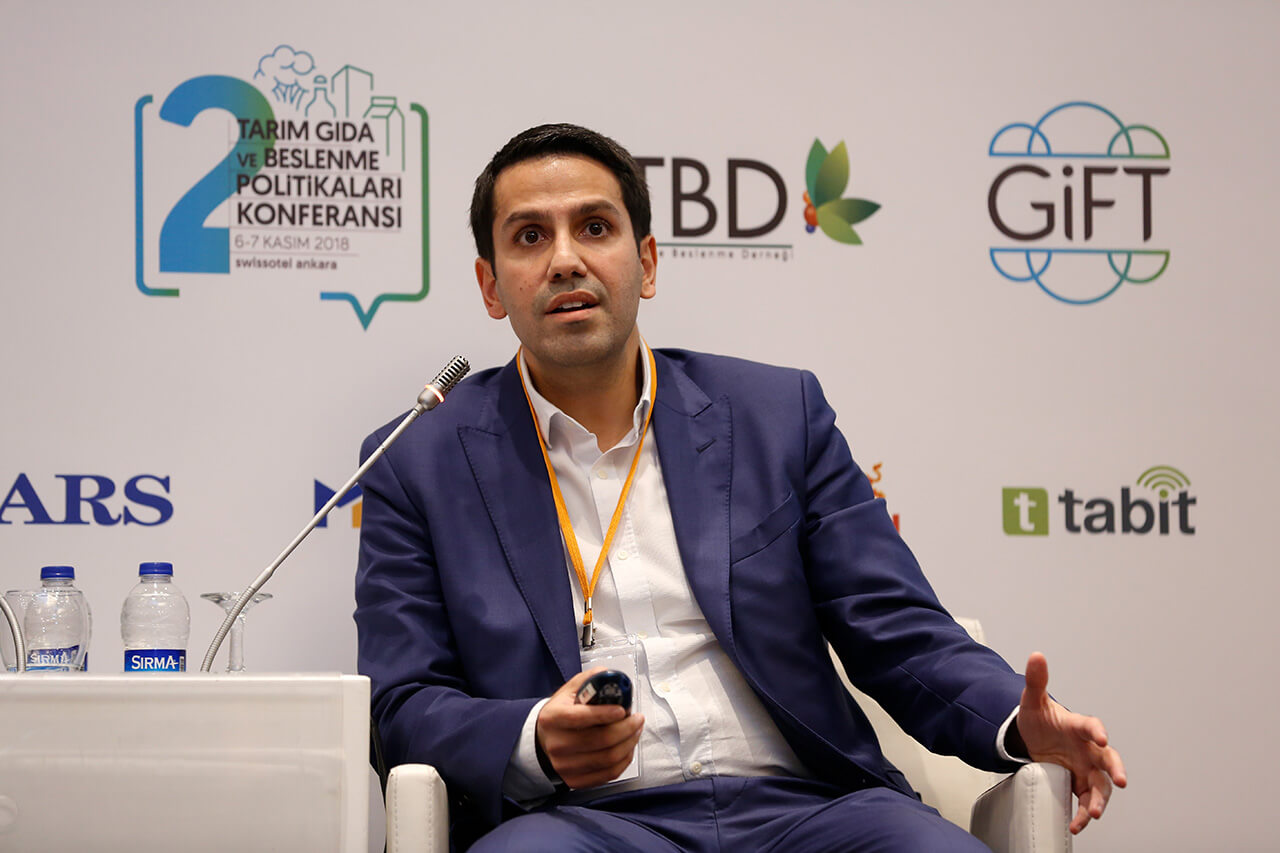
My presentation on the panel
The moderator Samet Serttaş, who was the leader of this conference and also the leader of the Food Supplement and Nutrition Association (GTBD) and the leader of the Center for Research on Food and Beverage Policy (GIFT) gave me the first chance to speak. Before I go into the details of the presentation, I would like to give you some information about these two organizers:
Core information about two regulatory CSOs
The Food Supplement and Nutrition Association (GTBD), public opinion on food supplements and innovative approaches were set out to raise awareness. Founded on August 4, 2016, the foundation aims to: bring together the top companies in the sector to contribute to the development of innovative food products sectors such as supplementary foods, sports foods, functional foods, and to solve the problems of this sector and to increase its reputation. For further information, you can visit www.gtbd.org.tr. I would also like to share a video of the Food Supplement and Nutrition Association: https://www.youtube.com/watch?v=Ape5PMZ45ao&feature=youtu.be
You can also find information about the Food, Beverage and Agricultural Policy Research Center (GIFT) at this link: https://gift.org.tr/: which includes information about the Food, Beverage and Agricultural Policy Research Center (GIFT) agricultural and food policy makers, details of the decision makers, which was established as a civil society initiative to meet the information and data needs of those who require it. In the first phase of the establishment process, GIFT, which has emerged as a civil platform within the framework of volunteering and participation principles, is a think-tank that has acquired the legal personality of the association as a result of an organic growth process in parallel with the demands and expectations of the stakeholders.
The GIFT conducts its activities using internationally recognized, science and data policy instruments to cover all relevant capacities. It is a pioneering think-tank that contributes to national decision-making and policy-making processes as a neutral civil society initiative by producing data and knowledge-based policy alternatives in the fields of activity which are multi-faceted and have a civil dialogue perspective.
I’d now like to share with you my presentation titled, “How can we provide the agricultural energy needs with renewable energy sources?
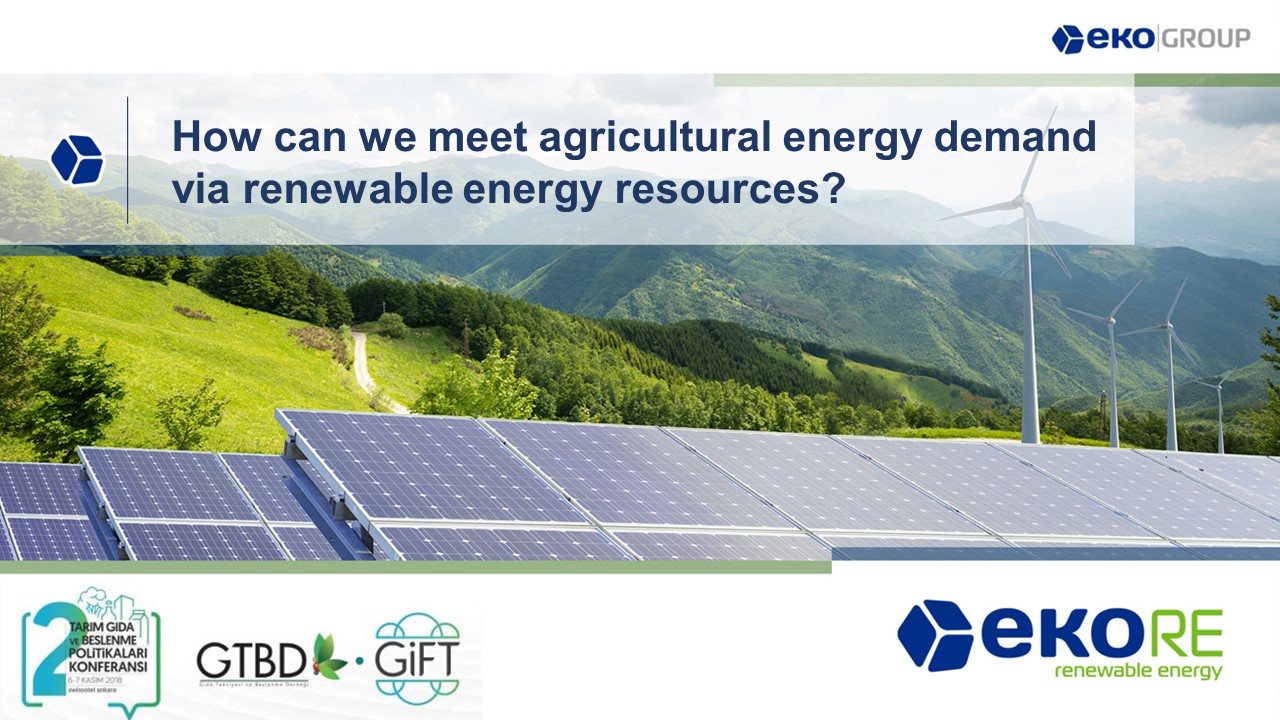
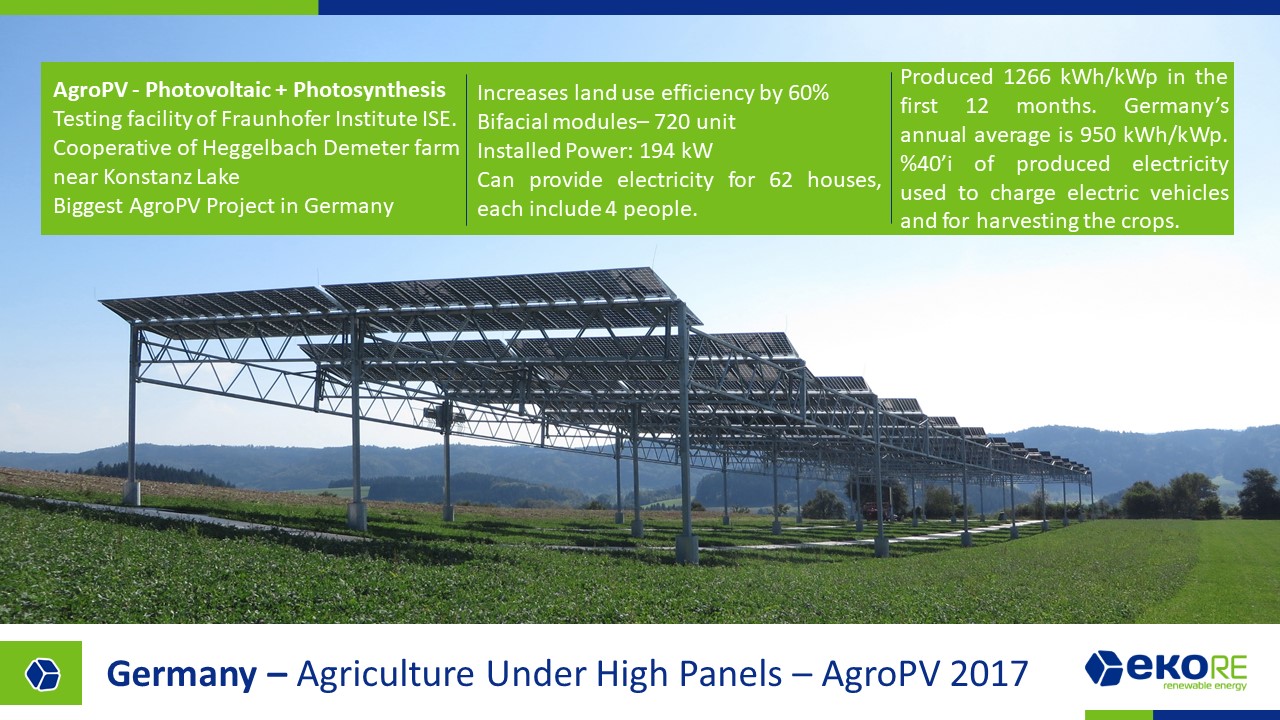
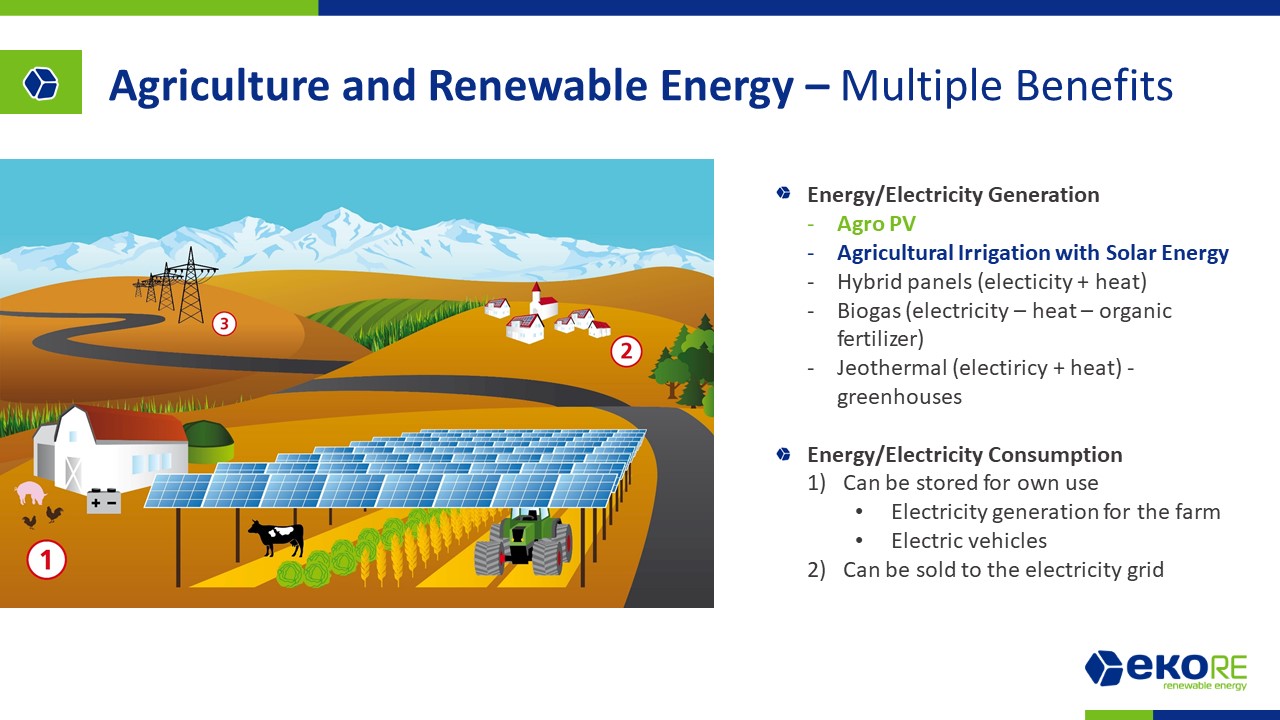
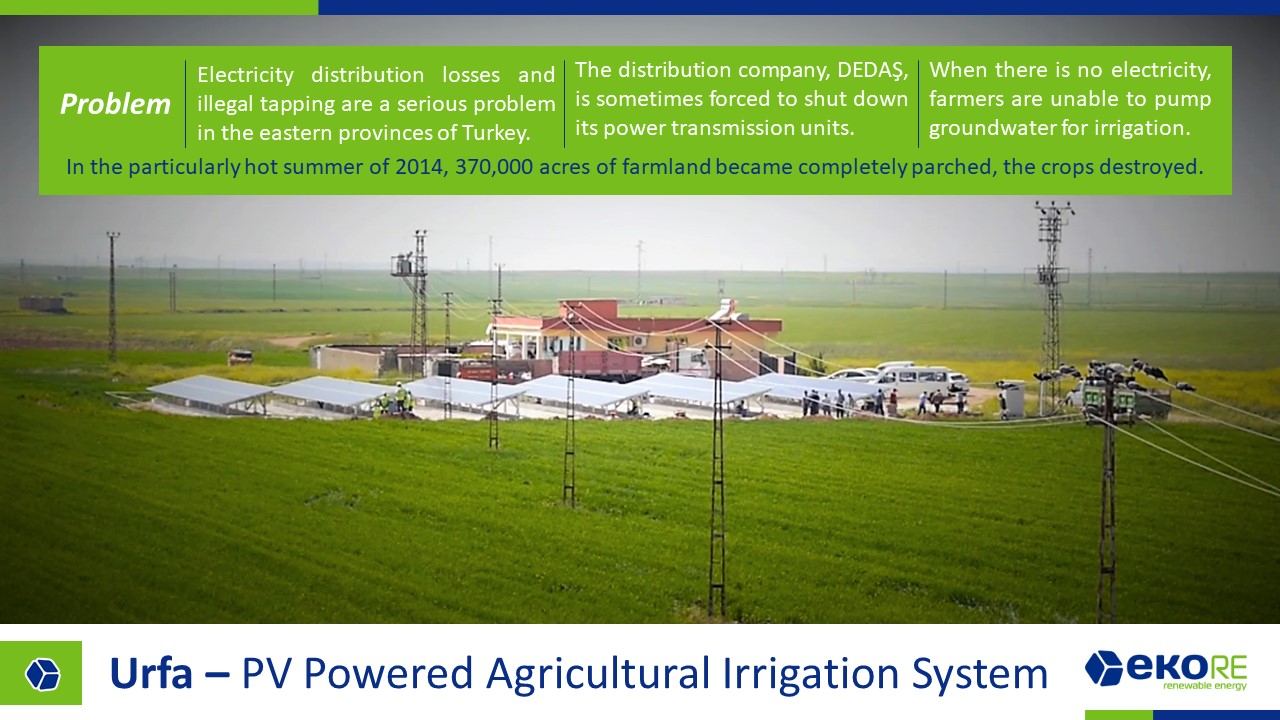
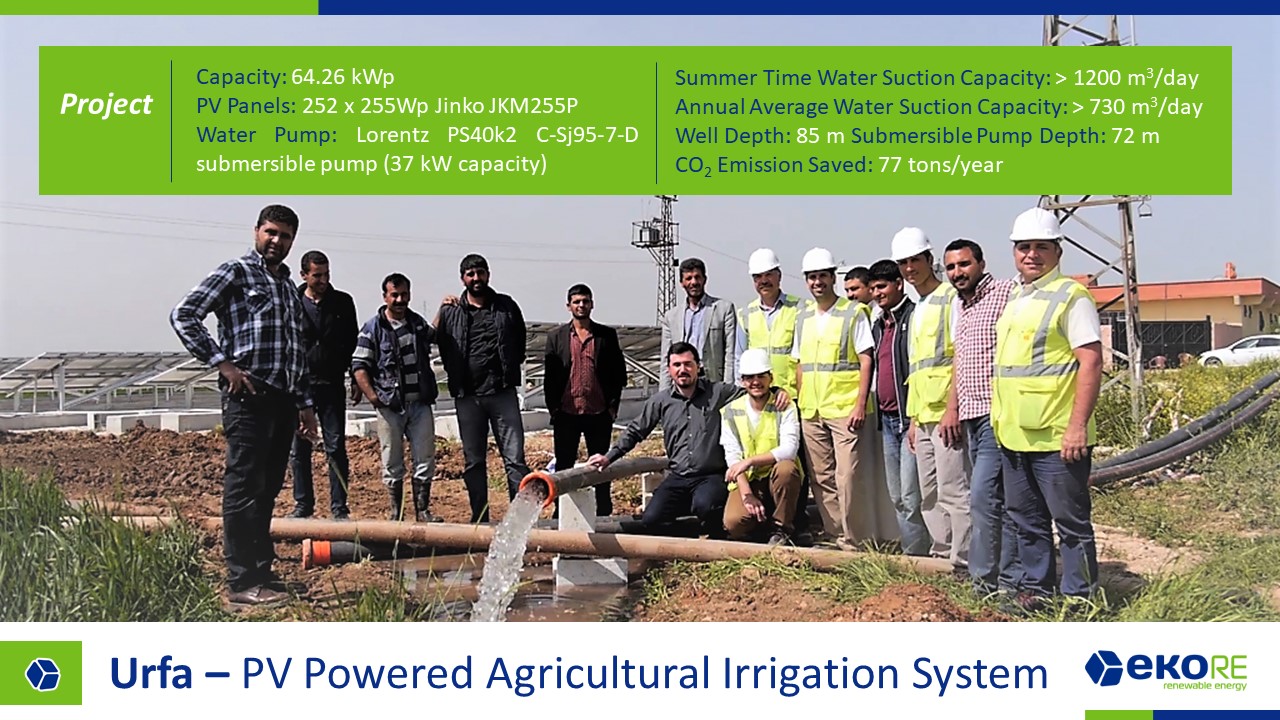
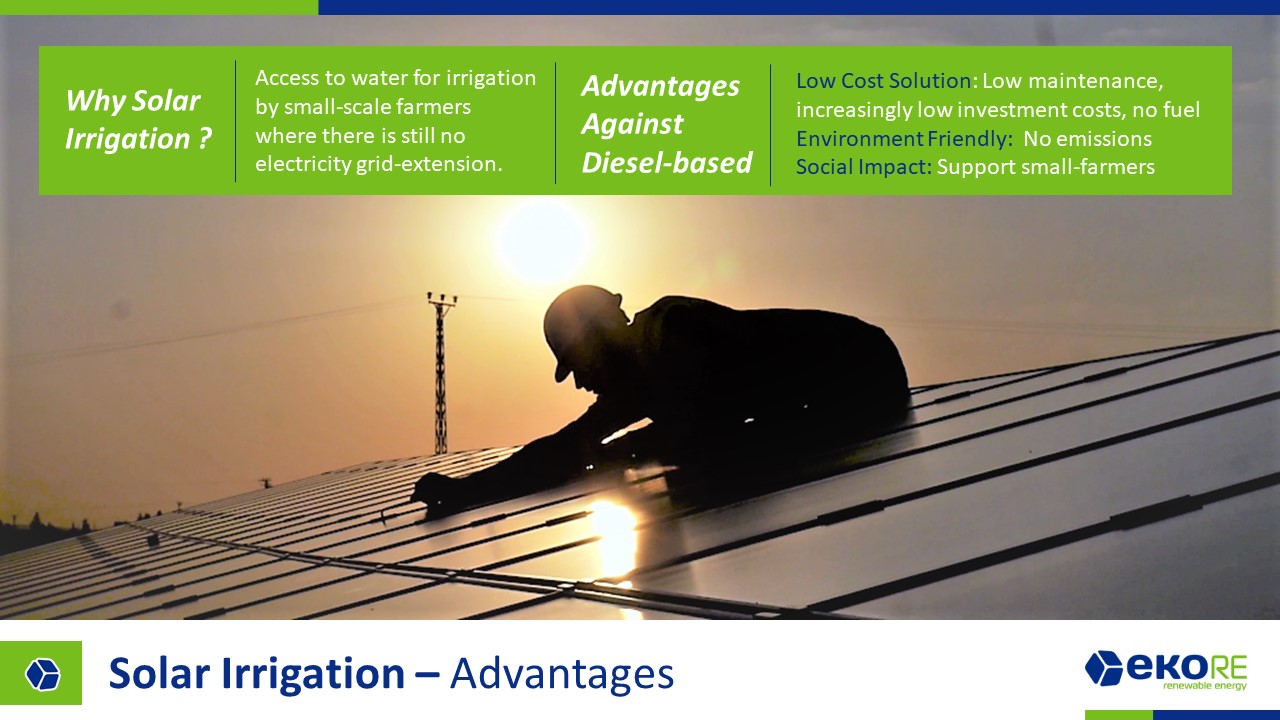

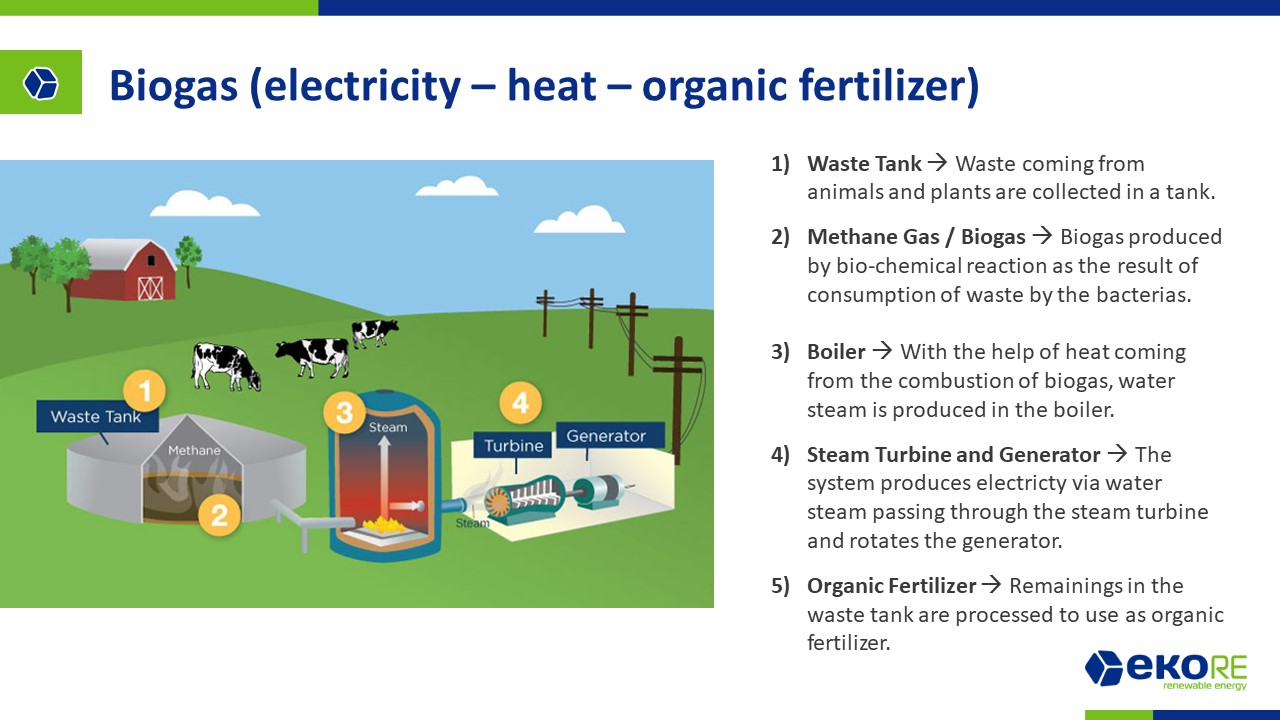
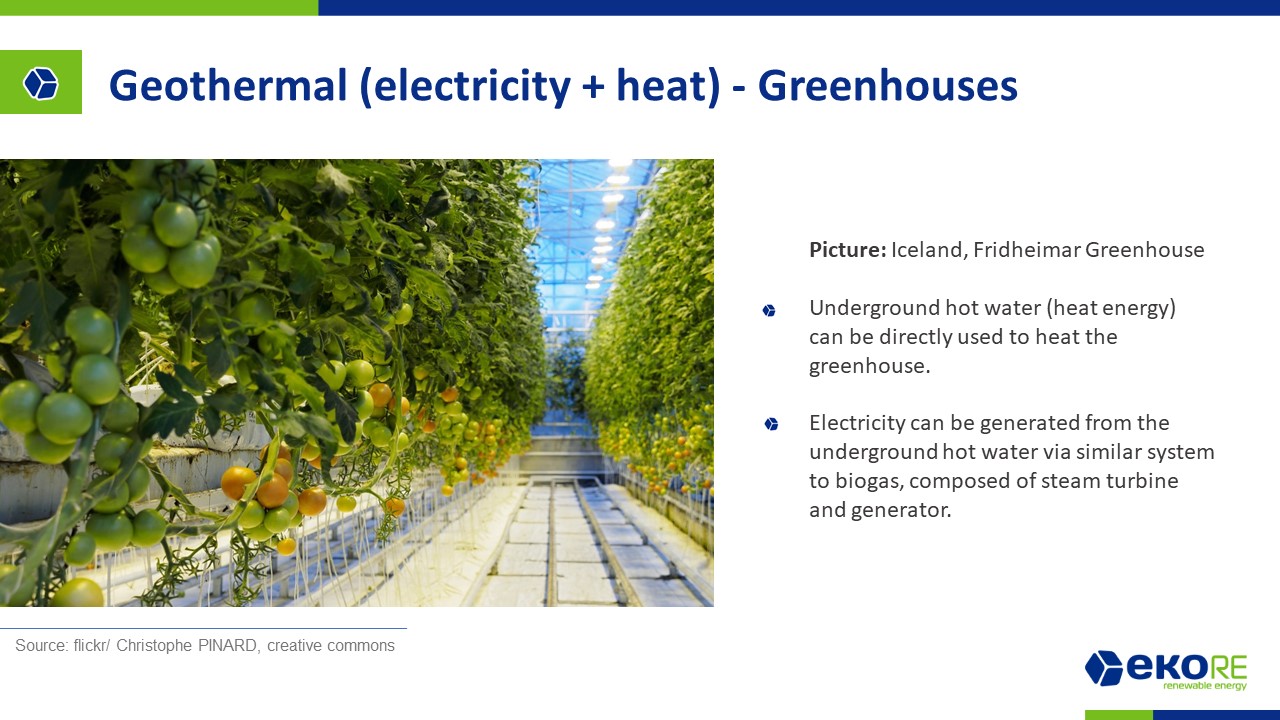
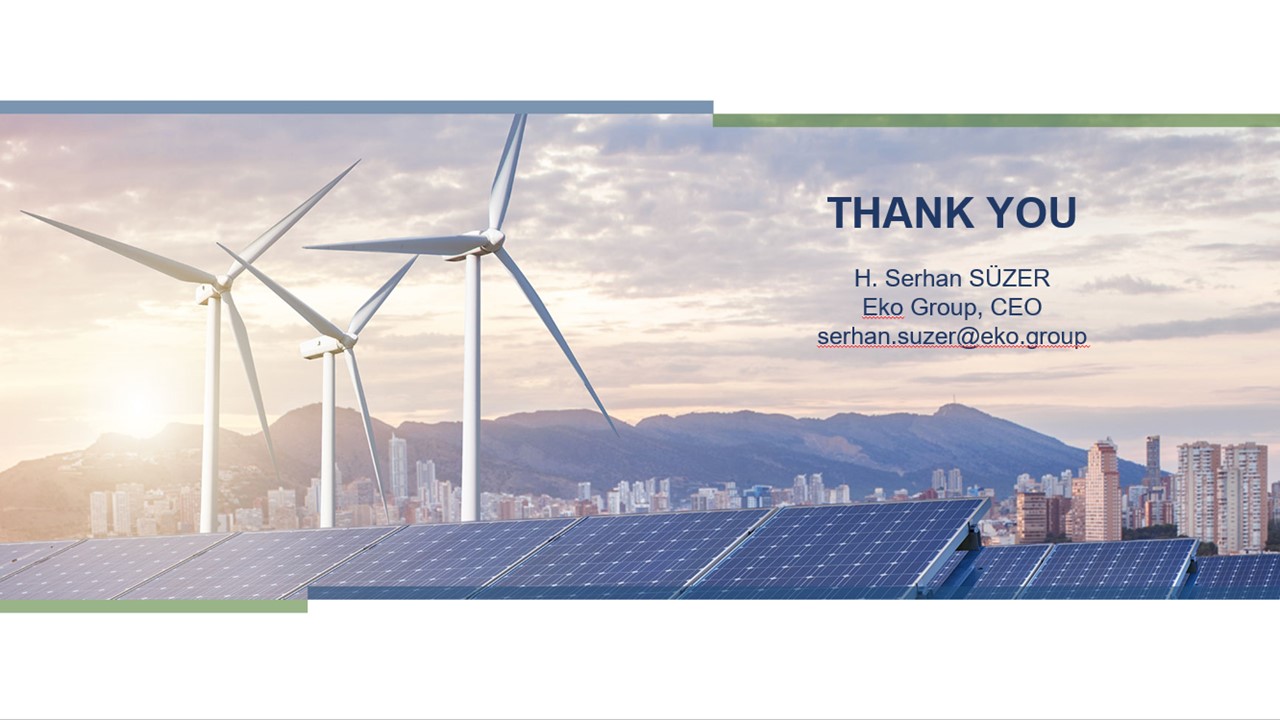
At the end of the speech, we then showed the video of the solar power plant feed agricultural irrigation project in Sanliurfa:
The need to focus on solutions
After I had completed my speech, the four other experts made their speeches. Their speeches were mainly based on climate change and its effects. The general consensus was that everyone was talking about problems. No one really touched on suggestions for solutions except for me. Distinguished speakers also made speeches on our panel, but to me they all gave the same message: Climate change has become a major problem in agriculture and in the food chain.
We all know there has been climate change. I think from now on, we need to focus more on concrete solutions instead of continually talking about the problem.
As you can see from my speech above, I emphasized that renewable energy should be encouraged and fully integrated with agriculture. I said, “Renewable energy is the greatest tool in the fight against climate change”.
After my presentation, I was given two more chances to speak. First, I asked Mehmet Uğur Yıldırım, the Head of the Operation and Maintenance Department of DSI, if he would benefit from water technologies. Especially in areas where drought is evident, and if water resources are finished, I advised that they should take on board the application of water producing technologies from moisture or air.
Act now, not later
At this point, another question was raised, in which I couldn’t help myself, so I asked for the right to speak again. A comment like this was made: “We need to educate young people about climate change. We can raise the awareness of this issue now and only provide a solution to this problem in future generations”.
I then took to the mic and said, “If we leave this up to the next generations, we will deepen the problems on behalf of humanity and future generations will not be able to overcome the problems. What we are doing today will be reaped by generations in the next 20-30 years. That's why we need to do what we need to do about climate change immediately. For example, we need to spread the technologies of renewable energy, water and agriculture (drip irrigation, automation, artificial intelligence, etc.) rapidly.
I stand behind everything I said in this panel. If required, we need to spread the technologies all over Turkey by the way of using laws and regulations. It is up to everyone to revolutionize agricultural business. Farmers, financiers, technology developers all have important roles. In order to reverse the impacts of climate change and improve our economy and ensure sustainable development, we need to revolutionize agriculture. This is only possible with technology!
Tag: sosyal sorumluluk


